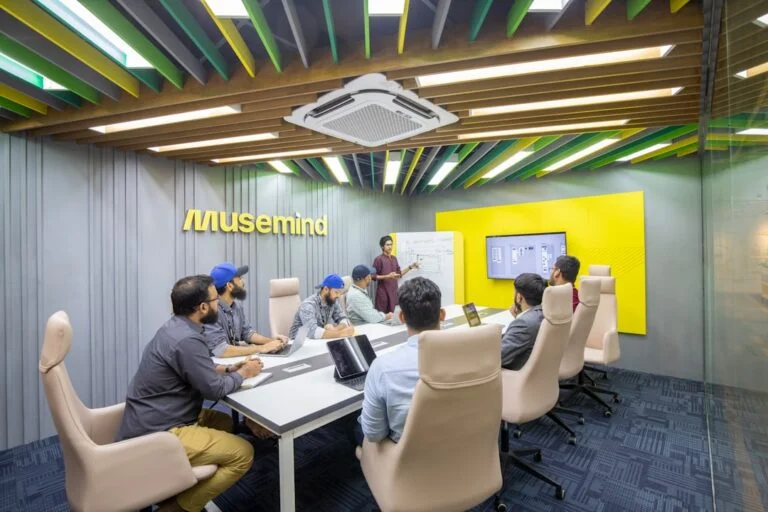Colonizing Mars presents a myriad of challenges that must be overcome in order to establish a sustainable human presence on the red planet. One of the most significant challenges is the harsh and inhospitable environment of Mars. With its thin atmosphere, extreme temperatures, and high levels of radiation, Mars is not a welcoming place for human life. In addition, the lack of a magnetic field on Mars means that the planet is not protected from solar and cosmic radiation, posing a serious health risk to potential colonists.
Another major challenge is the distance between Earth and Mars. The average distance between the two planets is about 225 million kilometers, which means that any mission to Mars would require advanced propulsion systems and long-duration space travel capabilities. This presents significant logistical and technical challenges, as well as potential health risks for the astronauts who would be making the journey. Furthermore, the communication delay between Earth and Mars, which can range from 4 to 24 minutes depending on the positions of the two planets, would make real-time communication and decision-making difficult.
Key Takeaways
- Colonizing Mars presents numerous challenges such as extreme temperatures, lack of atmosphere, and radiation exposure.
- Mars colonization is important for the survival of the human species and as a potential backup for Earth.
- Technology needed for Mars colonization includes advanced life support systems, efficient energy production, and sustainable food production.
- Mars colonization can have a significant psychological impact on colonists due to isolation, confinement, and the lack of natural elements.
- Sustainable living on Mars requires recycling systems, efficient resource management, and the development of closed-loop ecosystems.
- Mars colonization presents economic opportunities in the form of resource extraction, scientific research, and potential tourism.
- The future of Mars colonization holds promise for further exploration, potential terraforming, and the establishment of a self-sustaining human presence.
The Importance of Mars Colonization
Despite the numerous challenges, the colonization of Mars holds great importance for the future of humanity. One of the primary reasons for colonizing Mars is to ensure the long-term survival of the human species. By establishing a presence on another planet, humanity can mitigate the risks associated with potential global catastrophes on Earth, such as asteroid impacts, supervolcanic eruptions, or nuclear war. In addition, Mars colonization could also provide valuable scientific insights into the origins of life in the universe and the potential for life beyond Earth.
Furthermore, Mars colonization has the potential to open up new opportunities for scientific research and technological innovation. The unique environment of Mars presents a wealth of opportunities for studying planetary science, geology, and astrobiology. Additionally, the development of new technologies and systems for sustaining human life on Mars could have far-reaching implications for addressing environmental challenges on Earth, such as resource scarcity and climate change. Finally, the colonization of Mars could also inspire future generations and serve as a symbol of human ingenuity and exploration.
The Technology Needed for Mars Colonization
The successful colonization of Mars will require the development and implementation of advanced technologies across a wide range of disciplines. One of the most critical technologies needed for Mars colonization is advanced propulsion systems capable of transporting large payloads and human crews to and from Mars. This will require significant advancements in rocket propulsion, as well as the development of new spacecraft designs and propulsion methods, such as nuclear thermal propulsion or ion propulsion.
In addition to propulsion systems, Mars colonization will also require advanced life support systems capable of sustaining human life in the harsh Martian environment. This includes technologies for producing food, water, and oxygen, as well as systems for managing waste and recycling resources. Furthermore, the development of advanced habitat and infrastructure technologies will be essential for creating habitable environments on Mars, including radiation shielding, thermal regulation, and protection from dust storms.
Finally, Mars colonization will also require advanced robotics and autonomous systems to support human crews and perform tasks in the absence of direct human intervention. This includes technologies for conducting scientific research, maintaining infrastructure, and performing construction and resource extraction activities. Overall, the successful colonization of Mars will depend on the development and integration of a wide range of advanced technologies.
The Psychological Impact on Mars Colonists
| Psychological Impact Factors | Metrics |
|---|---|
| Isolation | Number of days without direct communication with Earth |
| Confinement | Space in square meters per colonist |
| Stress | Number of critical incidents per year |
| Depression | Percentage of colonists reporting symptoms |
The psychological impact on Mars colonists is a significant consideration that must be addressed in any plans for Mars colonization. The isolation and confinement of living in a small, enclosed environment for extended periods of time can have profound effects on mental health and well-being. Additionally, the distance from Earth and the lack of real-time communication can lead to feelings of isolation and disconnection from loved ones and support networks.
Furthermore, the extreme environment of Mars, with its harsh conditions and limited access to natural resources, can create additional stress and challenges for colonists. The constant need to rely on technology for survival, as well as the potential for equipment failures or emergencies, can contribute to feelings of anxiety and uncertainty. Additionally, the long-duration nature of Mars missions means that colonists will be exposed to prolonged periods of physical and psychological stress, which can have long-term effects on mental health.
To address these challenges, it will be essential to develop comprehensive support systems for Mars colonists, including access to mental health resources, social support networks, and opportunities for recreation and personal expression. Additionally, providing opportunities for real-time communication with loved ones on Earth, as well as access to cultural and entertainment activities, can help mitigate feelings of isolation and improve overall well-being. Finally, ongoing research into the psychological effects of long-duration space travel will be essential for developing effective strategies for supporting the mental health of Mars colonists.
Sustainable Living on Mars
Sustainable living on Mars will be essential for the long-term viability of a Martian colony. With limited access to natural resources and a harsh environment, it will be necessary to develop systems for producing food, water, and oxygen in a closed-loop manner. This will require advanced agricultural technologies capable of growing crops in Martian soil or hydroponic systems, as well as methods for recycling water and managing waste.
In addition to food and water production, sustainable living on Mars will also require renewable energy sources to power habitats and infrastructure. Solar power is one potential option for generating electricity on Mars, given the planet’s abundant sunlight. However, other options such as nuclear power or geothermal energy may also be considered. Furthermore, energy storage technologies will be essential for ensuring a reliable power supply during periods of low sunlight or dust storms.
Finally, sustainable living on Mars will also require careful management of resources and waste to minimize environmental impact. This includes strategies for managing carbon dioxide levels in habitats, preventing soil degradation, and minimizing pollution. Additionally, efforts to protect and preserve Martian ecosystems and geological features will be essential for maintaining the long-term sustainability of a Martian colony.
The Economic Opportunities of Mars Colonization

The colonization of Mars has the potential to create significant economic opportunities for both public and private entities. One potential economic opportunity is the development of new industries and markets related to space exploration and colonization. This includes opportunities for manufacturing spacecraft, habitats, and infrastructure for Mars missions, as well as providing transportation services and logistics support.
Furthermore, Mars colonization could also open up new opportunities for resource extraction and utilization. For example, Mars is known to have significant reserves of water ice in its polar regions, which could be used for producing water, oxygen, and rocket propellant. Additionally, Mars may also have valuable mineral resources that could be extracted and used for manufacturing or construction.
Finally, Mars colonization could also create opportunities for scientific research and technological innovation that could have broader economic benefits. For example, advancements in life support systems, robotics, propulsion technologies, and materials science developed for Mars missions could have applications in other industries on Earth. Overall, the colonization of Mars has the potential to stimulate economic growth and innovation both within the space industry and beyond.
The Future of Mars Colonization
The future of Mars colonization holds great promise for humanity’s expansion into space. As technology continues to advance and our understanding of Mars improves, it is likely that we will see increased interest and investment in missions to explore and eventually colonize the red planet. This could include both government-led missions from space agencies such as NASA or ESA, as well as private initiatives from companies like SpaceX or Blue Origin.
In the coming decades, we can expect to see continued advancements in propulsion systems, life support technologies, habitat designs, and robotics that will bring us closer to realizing the dream of establishing a sustainable human presence on Mars. Additionally, ongoing research into the psychological effects of long-duration space travel will help us better understand how to support the mental health and well-being of future Mars colonists.
Ultimately, the colonization of Mars represents a bold step forward in our exploration of space and our quest to ensure the long-term survival of humanity. By overcoming the numerous challenges associated with living on another planet, we have the opportunity to expand our horizons, advance scientific knowledge, stimulate economic growth, and inspire future generations with our spirit of exploration and discovery. As we look towards the future of Mars colonization, it is clear that this endeavor has the potential to shape the course of human history in profound ways.
As we continue to explore the possibilities of colonizing Mars, it’s important to consider the potential impact on Earth and its inhabitants. In a thought-provoking article by Just Tidings, the discussion around navigating change and controversy in Indian education sheds light on the complexities of adapting to new frontiers. Similarly, the challenges and controversies that may arise from venturing into space colonization require careful consideration and ethical reflection. It’s crucial to approach this endeavor with a deep understanding of its potential consequences for both Earth and Mars.




















+ There are no comments
Add yours